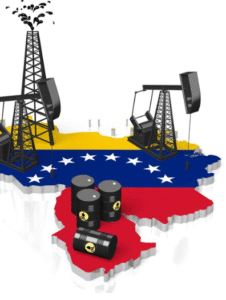$USO $OIL $XOM
#Trump #OilPrices #OPEC #SaudiArabia #GlobalOil #EnergyMarkets #GeopoliticalTensions #OilCrisis #Washington #USPolicy #OilSupply #EnergyDependency
Historically, the relationship between the United States and Saudi Arabia, especially regarding oil, has been complex and fraught with tension. This complexity has escalated under the administration of President Donald Trump, who is known for his unforgiving stance on what he perceives as past betrayals. Saudi Arabia, with its position as one of the world’s premier oil suppliers and the unofficial head of the oil cartel OPEC, has long been viewed with suspicion by Washington. The seeds of this distrust were planted during the 1973/74 Oil Crisis, a time when the U.S. and its allies were acutely dependent on Middle Eastern oil. This crisis not only reshaped U.S. energy policies but also left a lasting impact on the relationship between these two nations.
Trump’s approach to addressing this long-standing issue has been characterized by a hardball strategy aimed at exerting control over global oil prices. By leveraging the United States’ position as a major consumer and now a leading producer of oil, Trump has sought to influence OPEC’s production decisions, particularly those made by Saudi Arabia, in ways that favor U.S. interests. This strategy marks a significant shift from the more cautious approaches taken by previous U.S. administrations. It reflects Trump’s broader foreign policy philosophies, which prioritize aggressive negotiation tactics and a strong America-first focus. These efforts have led to a dynamic where the conventional power dynamics in the oil market are being challenged, underscoring a new era in geopolitical relations within the energy sector.
Trump’s maneuvers come against a backdrop of increasing oil production within the United States, thanks to advancements in fracking and drilling technologies. This surge in domestic production not only reduces U.S. dependency on foreign oil but also grants the administration more leverage in its dealings with OPEC. The strategy involves a delicate balancing act: on one hand, maintaining low oil prices to benefit the U.S. economy and consumers; on the other, ensuring that prices remain high enough to sustain the profitability of U.S. oil producers. The Trump administration’s efforts to influence OPEC, coupled with sanctions on major oil-producing nations like Iran and Venezuela, are part of this broader strategy to redefine the rules of global oil economics.
The implications of Trump’s hardball strategy are profound, not just for the U.S. but for the global economy. As Washington and Riyadh navigate this complex relationship, the outcomes will have far-reaching effects on energy markets, geopolitical alliances, and the future of oil dependency. While Trump’s approach has been divisive, it also signals a critical moment of transition, challenging the status quo of global oil politics. As the world continues to grapple with the implications of these shifts, the strategies employed by the U.S. will likely influence the direction of energy policies and diplomatic relations for years to come, underscoring the intricate and often contentious link between energy and politics.











Comments are closed.